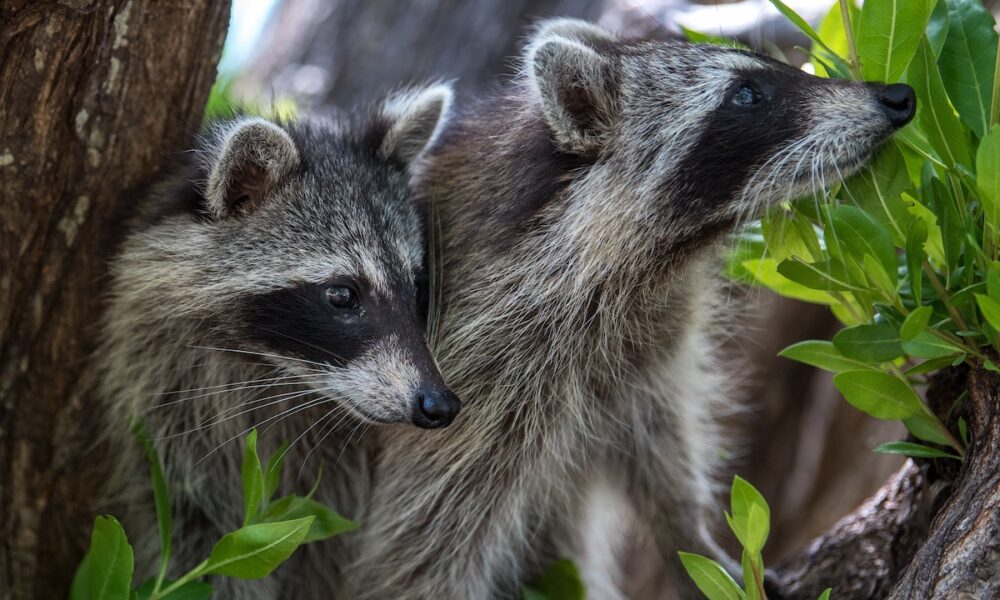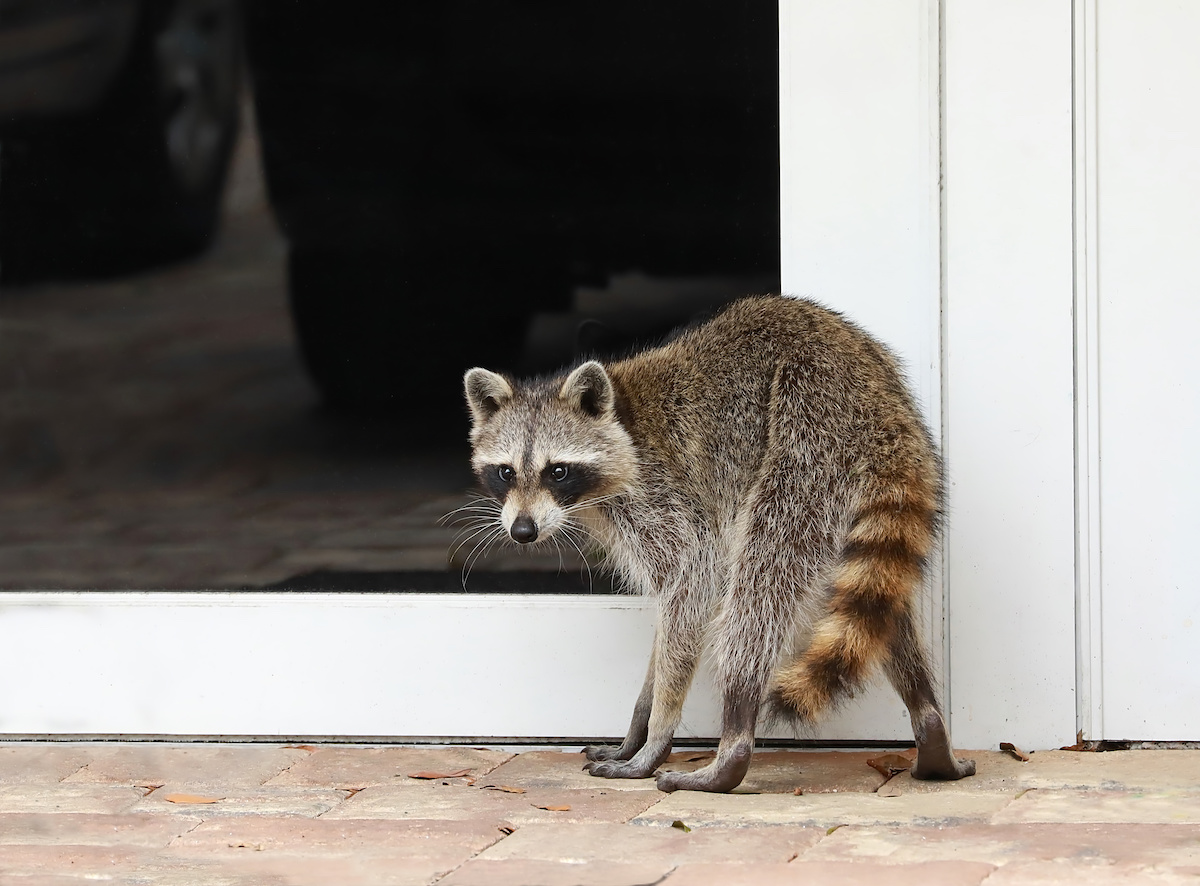
Pest control is an important part of home maintenance, and it’s even more important to prevent pest infestations. Raccoons are a common pest in Florida, and they can be a real nuisance if not managed properly. In this article, we’ll discuss how to identify raccoon infestations, what to do if you suspect one, and how to get rid of raccoons in Florida.
Raccoon Activity and Behavior: What You Need to Know
If you want to know how to get rid of raccoons, you’ll need to understand their behavior. Raccoon behavior is both fascinating and sometimes confusing. Raccoons are nocturnal, meaning they are mostly active at night. During the day, they may be found sleeping in their dens, which are usually in hollowed-out trees or burrows underground. These creatures are omnivores, meaning they eat both plants and animals. They can often be found rummaging through garbage cans or pet food bowls in search of food.
Meanwhile, raccoons are very social animals and live in groups of eight to twelve, or sometimes even larger. They can often be seen playing with each other and grooming one another. Raccoons also communicate with one another through a variety of vocalizations. They make chirping, whistling, and growling noises, which they use to express alarm, distress, and aggression.
Raccoons are not only interesting to observe, they are also incredibly intelligent. They are capable of problem solving and have been known to open latches, unscrew jars, and even open doors. This can be a nuisance if they are trying to get into your home or garden, so it is important to raccoon-proof your property to keep them out.
Safety Tips for Dealing with Raccoons
Dealing with raccoons can be dangerous, so it’s important to take safety precautions. First, you should always wear protective clothing, such as gloves and long sleeves. You should also avoid approaching raccoons directly, as they can be aggressive. Finally, if you’re setting traps, make sure to use ones that are specifically designed for raccoons.
If you’re looking for a professional to help with raccoon removal, it’s important to do your research and find a reputable company or individual. World Class Wildlife Removal is a professional animal removal service located in Florida that specializes in humane methods of trapping and relocating raccoons.
Use Caution: Raccoons Carry a Myriad of Diseases
One of the most important purposes of raccoon control is preventing the spread of disease, especially rabies. Raccoons are a wild member of the canine family and inhabit many areas across the United States. Although they are cute and often seem friendly, raccoons can carry a variety of diseases that can be dangerous for humans.
Rabies is one of the most well-known raccoon diseases and is caused by a virus that affects the nervous system. It is usually spread through the saliva of an infected animal, such as through a bite or scratch. If left untreated, rabies is almost always fatal. Therefore, it is important to be aware of the signs of rabies in raccoons and to seek immediate medical attention if you are scratched or bitten by one.
Raccoons can also carry canine distemper, a virus that is similar to rabies but is not as fatal. Canine distemper is highly contagious and is spread through contact with an infected animal’s saliva, feces, or urine. Signs of canine distemper in raccoons include coughing, seizures, vomiting, and diarrhea.
Leptospirosis is another disease that can be spread by raccoons. This bacterial disease can be transmitted to humans through contact with infected raccoon urine. Symptoms of leptospirosis include fever, chills, headache, muscle aches, red eyes, and vomiting. If left untreated, leptospirosis can cause serious complications.
Raccoon roundworm is another disease that can be spread by raccoons. This parasite is found in the raccoon’s feces, and can be easily spread to humans through contact with the contaminated soil or water. Symptoms of raccoon roundworm include nausea, abdominal pain, and vision problems.
How to Identify Raccoon Infestations
If you suspect you may have a raccoon infestation, there are several signs to look out for. One of the most obvious is seeing raccoons in your yard or around your home. You may also notice signs of damage, such as tracks, chewed up garbage, or holes in your garden. Homeowners also report strong odors and feces around the premises. Raccoons are also nocturnal, so you may hear them at night.
When you find evidence of a raccoon infestation, it’s important to take action as soon as possible. The longer you wait, the worse the damage can be. The raccoons may also become used to living in your home and it can be harder to get rid of them.
What is Raccoon Pest Control?
Raccoon pest control is the process of preventing and managing damage caused by raccoons. This can involve using traps and other methods to get rid of them, as well as taking steps to prevent them from coming back. Raccoons are generally considered a nuisance animal, as they are known to eat garbage, cause destruction to property, and may carry diseases.
When dealing with raccoon pest control, it’s important to understand that the most efficient method of control is prevention. By taking steps to make your home less attractive to raccoons, you can reduce the risk of an infestation and make it easier to get rid of them if they do come around. This includes:
- Sealing off any potential entry points
- Removing sources of food and water
- Keeping your yard clean and free from debris
We will explain the steps to take for these actions in this blog post.
What to Do if You Suspect a Raccoon Infestation
If you suspect you may have a raccoon infestation, the first step is to contact a pest control expert. They will be able to assess the situation and determine the best plan of action. This may involve using traps, removing sources of food and water, and sealing off potential entry points.
It’s also important to take steps to prevent a raccoon infestation.
Furthermore, you’ll need to promptly remove garbage or store it in a container that is difficult to open. Garbage serves as a primary food source for these animals. Tightly close the lid of your garbage cans and keep them inside the garage if you can. It’s also important to contact a pest control expert as soon as possible, as the longer you wait, the harder it can be to get rid of them.

How to Get Rid of Racoons in Florida: Prevention and Control Methods
When you want to get rid of raccoons, prevention is the best place to start. As mentioned earlier, the most efficient way to deal with raccoons is to prevent them from coming in the first place. This can be done in several ways. First, make sure to seal off any potential entry points. This includes windows, doors, and other openings.
You should also remove sources of food and water, such as pet food, bird feeders, and standing water. Keeping your yard clean and free of garbage is also important. Finally, you should contact a pest control expert if you suspect a raccoon infestation.
Trapping and Relocating Raccoons
If you’ve already identified a raccoon infestation, the next step is to set traps. Traps are the most effective way to capture raccoons, and they can be purchased at most hardware stores. Once the raccoon is trapped, it should be relocated to a safe location, preferably away from your home.
It’s important to note that trapping and relocating raccoons can be dangerous and should only be done by a professional. If you’re looking for a professional raccoon trapper near me, check out World Class Wildlife Removal. They specialize in humane methods of trapping and relocating raccoons.
World Class Wildlife Removal: Professional Raccoon Trappers Near Me
World Class Wildlife Removal is a professional animal removal service located in Florida. We specialize in humane methods of trapping and relocating raccoons, as well as other wildlife. Their experienced team can assess the situation, set traps, and safely relocate the raccoons to a safe location.
In addition to raccoon removal, World Class Wildlife Removal offers a variety of other services, such as snake removal, bat removal, and rodent control. Please contact us today for more information on how to get rid of raccoons in Florida.
